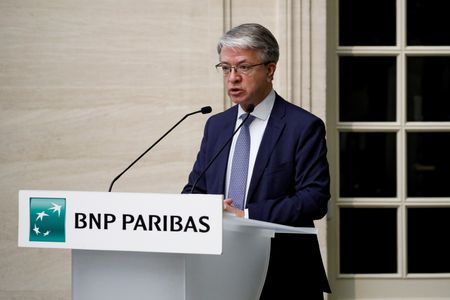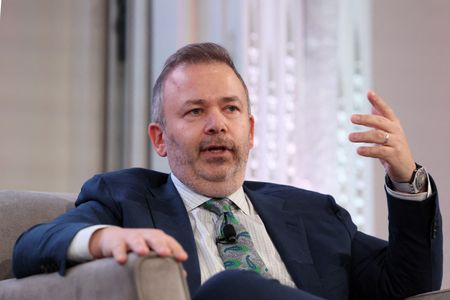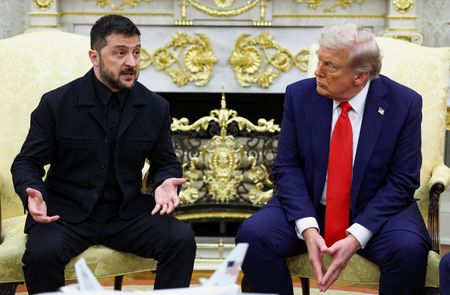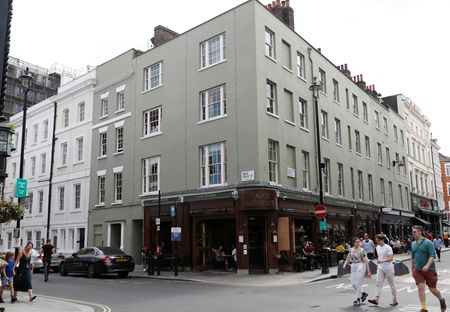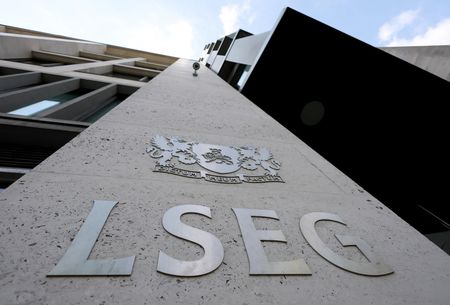By Mathieu Rosemain
PARIS(Reuters) – Investors in BNP Paribas are starting to consider who might lead the bank once long-time chief executive Jean-Laurent Bonnafe leaves amid a scarcity of obvious internal candidates to succeed him, sources familiar with the matter said.
Some of the French lender’s shareholders are urging the bank to bolster succession planning after a senior executive’s departure last year left a gap internally if Bonnafe were to leave in coming years, one of the sources said.
They are concerned that the lender does not have a clear line of candidates, some of whom would probably need to spend a few years in a senior role before stepping into the top job, said another source. All required anonymity because these discussions are private.
Bonnafe, 63, is poised to have his position as a director renewed at the next shareholder meeting in May, enabling him to stay on as CEO until he reaches 65, the initial age limit to lead the company.
The lender’s board could grant Bonnafe an additional year, allowing Bonnafe to run the bank until 2028 at the latest.
A spokeswoman for BNP Paribas declined to comment.
There is no urgency to replace Bonnafe, who is praised by investors for his meticulous risk management, execution of the bank’s strategy and familiarity with clients, as well as for elevating BNP’s standing as a major European investment bank.
Bonnafe, who has led BNP since 2011, has bet on growing the securities trading and merger advisory businesses and competing with Wall Street peers, filling a gap left by European rivals that have retreated.
Last year, the investment banking division made up about 45% of the lender’s 16.2 billion euros ($16.9 billion) in pre-tax income.
The abrupt departure of the head of BNP’s French retail unit less than a year ago prompted queries from some of the shareholders and within the board, chaired by Jean Lemierre, the first source said.
Marguerite Berard, who had joined BNP in 2019, left in March. Berard, 47, was perceived outside and inside the company as a potential successor, three of the sources said.
Dutch bank ABN Amro recently tapped her to take over as CEO as it prepares for a further government stake sell-down.
BNP is led by the so-called general management, which is composed of Bonnafe and three others.
An obvious candidate from the enlarged executive committee, which includes another 15 other top managers, has yet to emerge, three of the sources said.
Among the recently promoted executives who might eventually replace Bonnafe, two of the sources pointed to Isabelle Loc, who succeeded Berard as head of the French retail division, and has quickly risen through the ranks.
BNP Paribas has historically picked its CEOs within its ranks and Bonnafe had been groomed to succeed his predecessor, Baudouin Prot.
Of course, companies’ succession plans are typically closely guarded secrets and the lender could surprise with plans it has not yet shared.
BNP Paribas announced at the start of the week that its chief operating officer, Laurent David, was leaving and would be replaced by Philippe Maillard, who holds a similar role in its investment banking division.
The bank did not say why David was leaving. Reuters could not ascertain if this personnel change addresses succession planning.
European banks have seen profits rise as interest rates jumped in 2022 and 2023, giving lenders bigger margins on loans and bolstering their shares.
Still, BNP shares have gained 11% in the past two years, compared with a 50% gain in the STOXX Europe 600 Bank Index, and the bank’s valuation lags that of some of its peers.
BNP trades at about 0.6 times its book value, while HSBC shares value the lender at the same level as its book value and Barclays trades at 0.6 times.
French banks’ stock prices have been impacted by political uncertainty as the country struggles to reduce its lingering deficit. Analysts have noted that the political instability has led to increased borrowing costs and potential challenges in implementing fiscal reforms, affecting the financial sector.
($1 = 0.9607 euros)
(Reporting by Mathieu Rosemain; Editing by Tommy Reggiori Wilkes, Anousha Sakoui, Elisa Martinuzzi and Susan Fenton)

